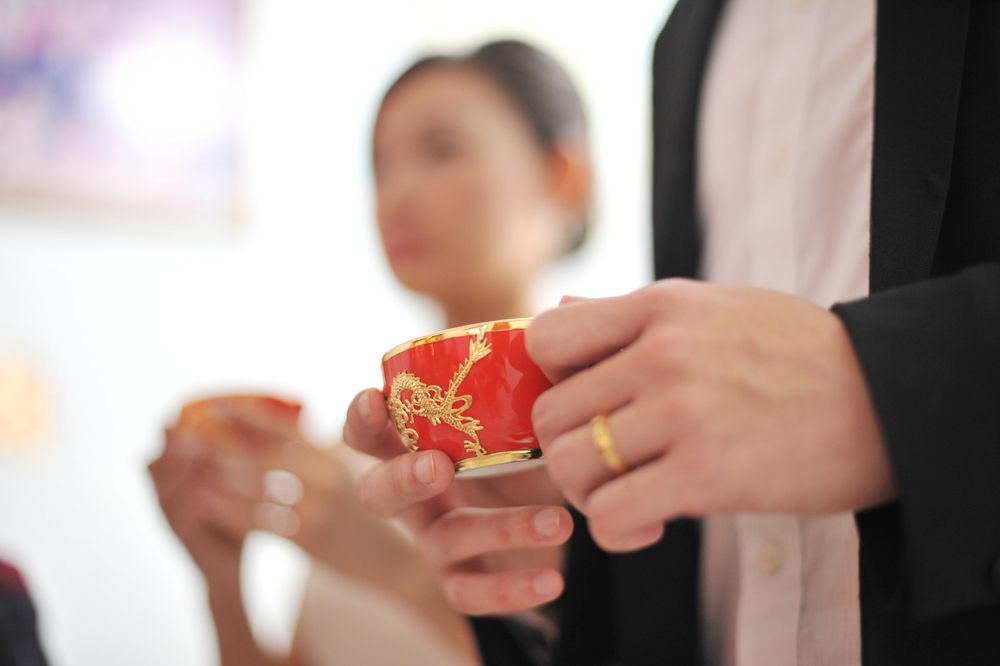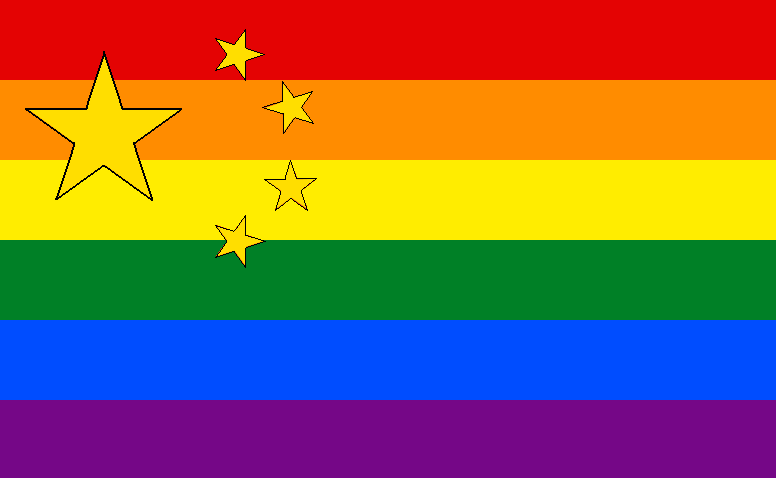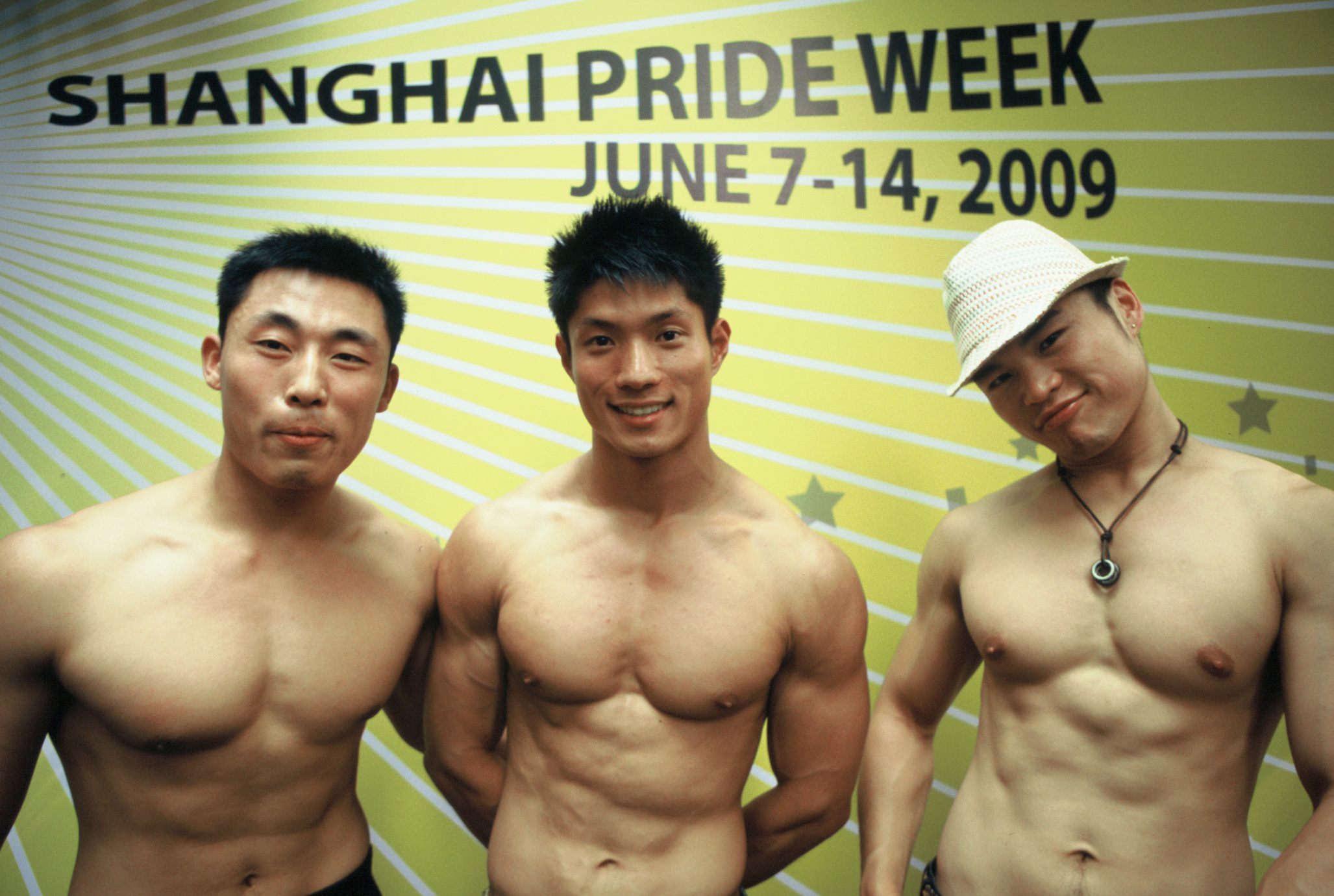In China, Gay Marriage is Between a Man and a Woman

It’s all a ruse. (Photo: szefei/shutterstock.com)
In China there’s been a surge in xinghun, variously translated as “cooperative marriage” or “marriage-for-show”—that is, weddings between gay men and lesbian women. A young gay man in Beijing says that right now probably 50 percent of gays choose xinghun in order to assimilate into China’s conservative, family-oriented society.
When gay men marry lesbian women, things can get complicated. Recent stories in the press have featured two lesbian couples living together, with four gay husbands off on the side. Or married gay couples (as in—a man and woman who are both gay) who have recently had a child but are still living with their respective partners, and trying to figure out what to tell their son as he gets older. To an outsider, it may seem like the distorted Chinese version of the 2011 film Friends with Kids, where two platonic friends try to start a family.
Maintaining a “cooperative marriage” to the satisfaction of two sets of prying parents with traditional expectations is highly complex. Nonetheless, thousands of gay men and women are tying the knot. Chinagayles.com, the earliest and most active website for gay men and women to find stand-in spouses, currently has over 380,000 users and claims to have matched nearly 20,000 couples since it started in 2005. But matching up with someone is just the first step—from there, it can take years to establish expectations, discuss financial responsibilities, and figure out the logistics of how the marriage is going to work.

Not quite there yet. (Photo: Fobos92/Wikimedia Commons CC BY-SA 3.0)
How does it work? It’s advised that one approach a “cooperative marriage” like a business deal. Generally, xinghun couples, who tend to be wealthier, will arrange some form of pretend cohabitation. This means a place where they “live together” and can bring their parents to visit. Sometimes this is one of their apartments, and sometimes, if they can afford it, it’s an empty flat exclusively for parent-pleasing occasions, carefully strewn with items suggesting the couple is happily shacked up.
Some members of these “marriages-for-show” have long-term partners on the side, while others date casually or not at all. Either way, there’s the unavoidable baby question (the reason their parents wanted a marriage in the first place), and that can get tricky. Those who don’t want to raise a child with a fake spouse will sometimes pay for sham certificates declaring the wife infertile, which they’ll then show to their parents.
While xinghun is hardly ideal, it’s an improvement from what’s already been going on for centuries—gay men wedding heterosexual women and vice versa. According to research from Qingdao University, 80 percent of the estimated 20 million gay men in China are in fake marriages, meaning that 16 million Chinese women are currently married to gay men. Unlike the users of the xinghun website, the majority of these partners were not informed beforehand.

The Chinese character for happiness and couple, often used as a wedding decoration. Happy couple, indeed. (Photo: sharptoyou/shutterstock.com)
Until 1997, homosexuality was a crime in China, and until 2001 it was still classified as a mental illness. Yet today’s pressures to be “normal”—having a traditional family and continuing the bloodline—come less from the government and more from the family. In China, you can only obtain a permit to have a child if you’re married, and a child born out of wedlock isn’t allowed basic identification information (hukou). This has led to a phenomenon known as “sexless marriages,” which is an option for Chinese who want to start a family but don’t want a romantic relationship. There are separate websites catering to the hundreds of thousands of Chinese seeking this kind of baby-enabling nuptial.
Childless Chinese are left with wracking guilt: Mencius, an ancient Chinese philosopher, said that failing to produce offspring is the worst form of disloyalty towards one’s parents. Add in the One Child Policy, and you have gays feeling that their lifestyle is “selfish” because their parents have no other options for grandchildren.
Yet the one-child conundrum can be flipped the other way, too. Tian Tian, a 30 year-old woman working in Beijing, says that since most young adults are the only child, if they come out, their parents have to accept it—otherwise they lose their sole child in addition to a prospective grandkid. She adds that thanks to the internet, people her grandfather’s age now “know what’s free love.” Tian Tian, who is recently married, says it’s more accepted for men to come out than women. “Gay okay, les[bian] no.”

Which nice woman wants one of these fine eligible men? (Photo: kris krüg/flickr)
That, of course, is in Beijing, which is more progressive than most of the rest of China. According to a 2013 Pew study, just 21 percent of Chinese believe that society should accept homosexuality. There are social media polls that suggest otherwise, but don’t be fooled. Even among students, there remains a strong anti-gay bias.
There are more and more signs of hope, like a marriage proposal between two men on the Beijing subway that recently went viral; however, change is painfully slow. Since China’s legal system is seemingly designed to baffle, no one knows how gay marriage would be legally recognized even if it had the right support. It’s a practical matter as well as a human rights one: Some 30 million more men than women will enter China’s marriage market by 2020. Gay men in particular should be marrying each other, instead of marrying members of the decreasing population of heterosexual women. China will shortly need to reconsider its stance.
Sadly, in the meantime, more and more gay men will continue seeking lesbian spouses, and together they will have to navigate the parent-pleasing, logistical nightmare that is “cooperative marriage.”








Follow us on Twitter to get the latest on the world's hidden wonders.
Like us on Facebook to get the latest on the world's hidden wonders.
Follow us on Twitter Like us on Facebook